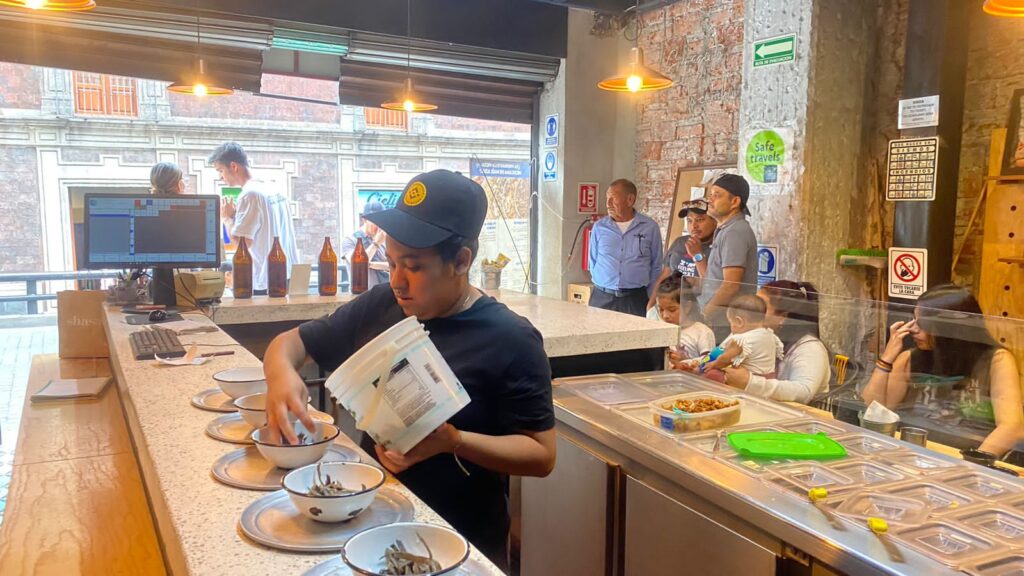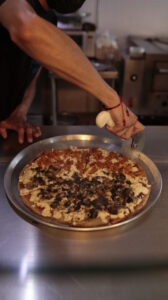In the Historic Center and in the Roma Norte neighborhood, Mexico Citythere are two places where visitors can enjoy a delicious pizza in the company of family or friends. The establishments have the name of Pixza and have become relevant because their business model goes hand-in-hand with the social venturethrough the inclusion.
In an interview via Zoom for Sea of Cortez Forum, Ulises CerónImpact's director, emphasizes that Pixza is born from the promise of generating a good product and the drive to make the place where we live a better place.
He says that the idea of this venture was born from its founder Alejandro Souzawhen I was studying for a master's degree in New York and missed the tlayudas, a kind of corn tortilla typical of Oaxaca.
"We started talking about 'well, how about making a blue corn pizza? What would it be like? What would it contain?' and from there the idea of the product came up, which is the star product we handle and the ingredient that is present in all our dishes," he says.
Alejandro's idea was not to open a business and that's it, but rather that through this venture, with the support of his collaborators, they could help build a country where origin would not determine where a person would end up.
"From that point on, we began to implement both the product and a model of social inclusion that we have, called La Ruta del Cambio (The Route of Change). This model has almost 9 years of history and has been iterated as time goes by until reaching the current version we have," Ulises explains.
A platform for social empowerment
The director of Impacto de Pixza stresses that The Road to Change is designed to be a platform for the growth of the people who enter to work in the company. Pixza and for the social inclusion of groups that are exclusively at risk of social exclusion.
"Inclusion has to be as radical or more radical than exclusion, so we only work with people who meet a profile of social abandonment, this means people who are in a process of reintegration, for example, having been released from prison, or people who have a history of trafficking, survivors of trafficking, people who for one reason or another have come to live on the street, who are recovering from addiction processes," he says.
Ulises Cerón emphasizes that The Road to Change not only to employ these people, but also to provide them with an opportunity to socioemotional and labor accompaniment during a process of approximately one and a half years. The objective is to allow them to grow within the same industry or migrate to other industries without the need for an educational passport.
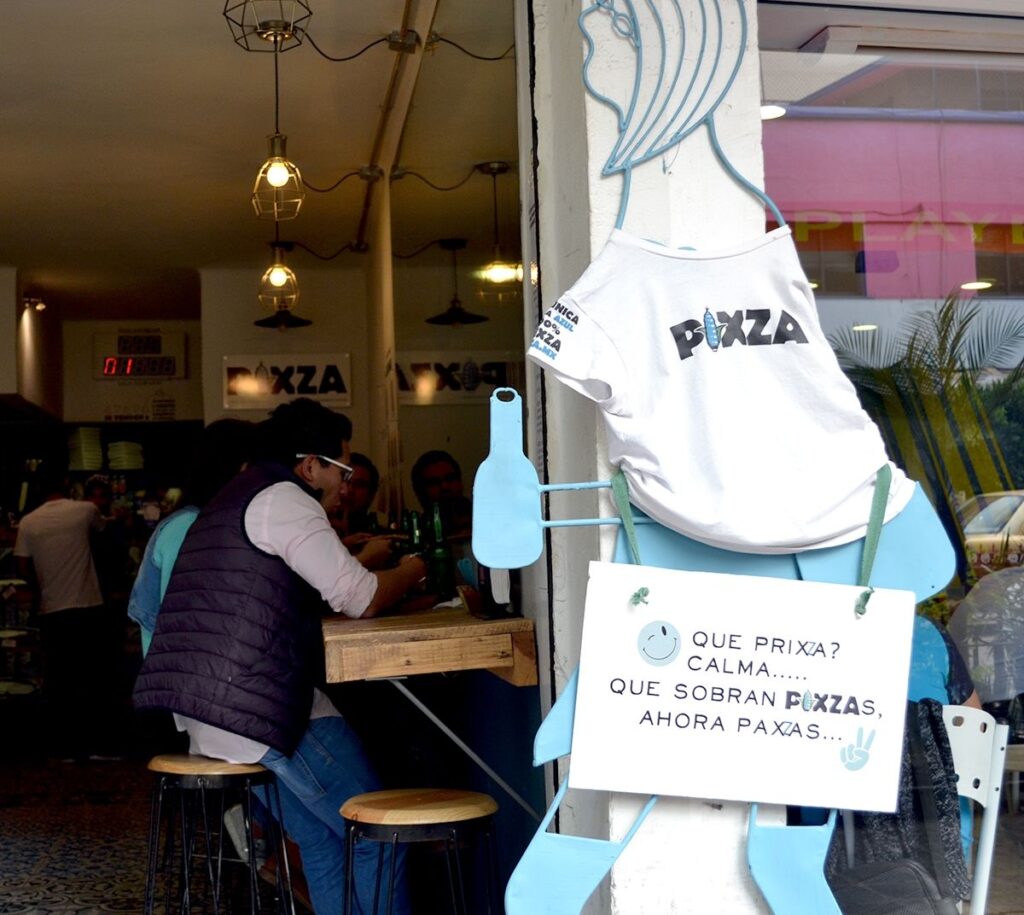
"We look at industries that don't require an educational passport or a bachelor's degree, a master's degree, but rather require a portfolio, so, we handle information technology, digital content creation and editing, entrepreneurship or self-employment and the restaurant industry itself," he explains.
Each of these tracks comes with its own training package and accompanies people until a formal job offer is made that guarantees them at least the legal benefits and an improvement in salary compared to what they earn at the company. Pixzahe says.
Nearly 90 people have been reintegrated into society
Ulises comments that the model of Pixza designed its processes in the simplest possible way to ensure that anyone can be included. When a person graduates and a vacancy opens up, it is published in an allied network of more than 50 foundations and interviews are scheduled from there.
"The only thing we look for is motivation, that's the main thing. As long as we find that, the first person who meets that profile of having the motivation can come and work with us, with no other requirements," he says.
He clarifies that there may be certain cases with people who present some psychiatric condition that prevents them from entering, because they do not yet have the scaffolding to deal with that, although the idea is to have it at some point.
To date, 87 people have been able to complete The Road to Change and 7 others are currently working in different areas of the business units of the company. Pixza.
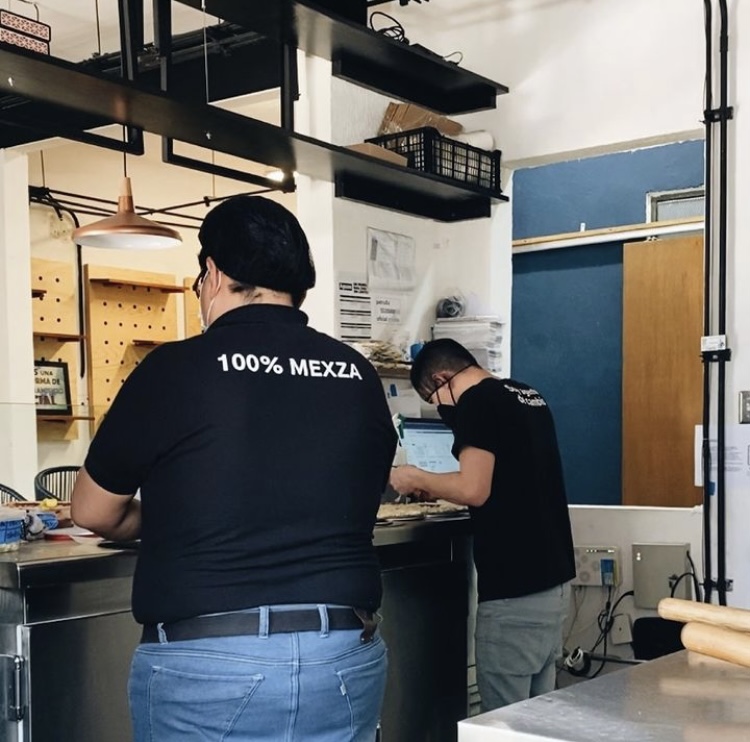
Social entrepreneurship is profitable and people support it.
Pixza is the practical demonstration that a business model with a focus on the social venture does work, stresses the firm's Impact Director.
This is a business that, with certain more ruthless logics, should not exist; however, not only does it exist, but it is growing and is sustainable as an economic project, he says.
"The inclusion process requires, at least up front, raising the cost of operation a bit, but the numbers balance out over time," he says.
As an example, the average labor turnover in the restaurant sector in Mexico is 120% per year, while in the United States it is 120% per year. Pixza that number is in 30% and that is because when a position is vacated there is a period with people who decide not to continue with their Route of Change.
"In one year, what one loses economically in personnel training alone, with an annual turnover of 120%, is impressive, so if we look at this metric alone, an inclusion process becomes economically viable, but only in the medium term," he says.
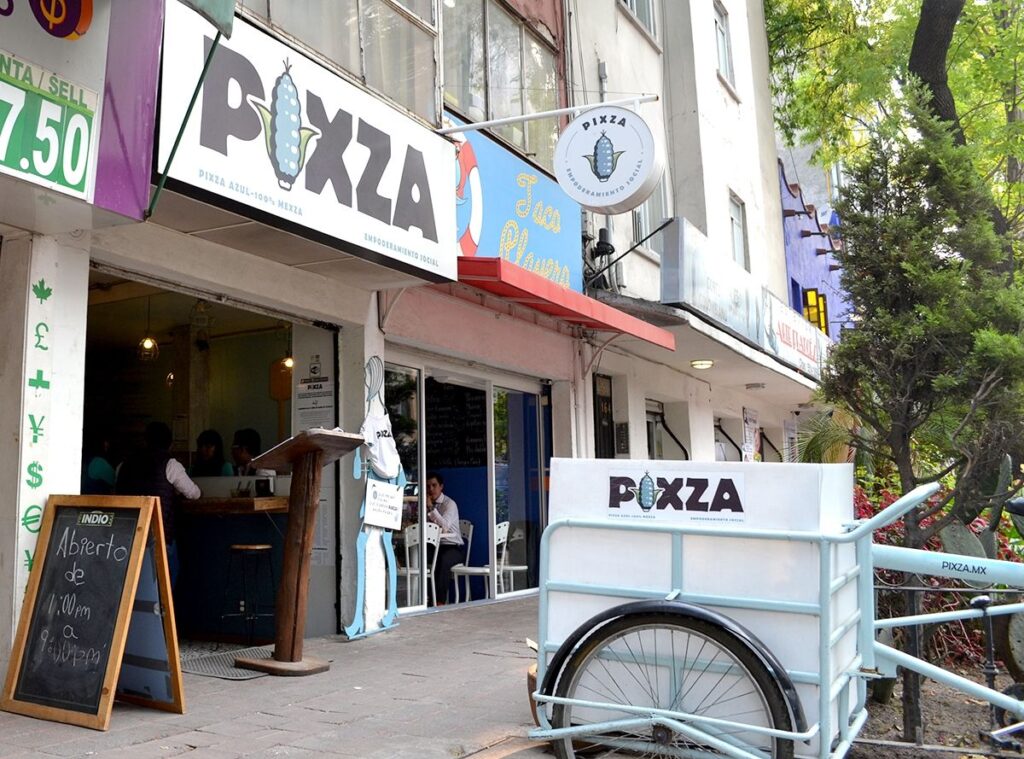
Another important consideration, he says, is that people today are more aware of the impact of the companies in which they consume or in which they choose to spend their money.
"We have a program where for every 10 pizzas sold we donate one and those donations are accompanied by messages that customers write, so each slice we donate comes with a message and those messages say a lot about the commitment of the people who enjoy our product and contribute to the project we have," he says.
More presence and export of the model, Pixza's goals
Currently Pixza has two establishments in the Mexico City and also sell their products through Jüsto y Smart FishThe company's goal is to increase its presence at the national level.
Another goal is to export this model of inclusion to other countries. The Road to Change to different organizations and generate mentoring on hybrid finance, advisory or consulting processes, both for NGOs and for companies that seek to include social impact in their dynamics.
"With the aim of exporting the Route of Change model, we have just created a figure called Inclusion Supernovae. From this figure what we seek to do is to enable certain industries to acquire the Route of Change model, because at the beginning it generates a cost overrun and that is where the figure of Supernovas of Inclusion comes in, from which this is also subsidized a little", he emphasizes.
Ulises assures that there are many companies that are looking for a way to reconcile their logic of being a business that must generate money, while having a positive social impact.
Pixza is proving not only that it is possible, but that it is worth the effort.

